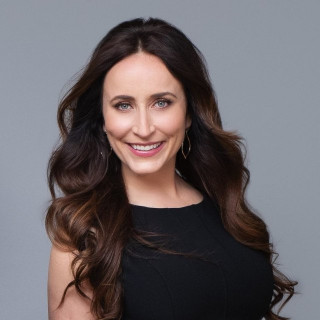Filter by
What an Elder Law Lawyer Can Do for You
An elder law lawyer specializes in legal issues that affect older adults, their families, and caregivers. These lawyers handle a broad range of topics, including estate planning, Medicaid and Medicare, long-term care planning, guardianship, elder abuse, and retirement planning. The goal of an elder law lawyer is to protect the rights, finances, and well-being of elderly individuals and to help them plan for future healthcare and financial security.
If you or a loved one is aging and facing challenges related to healthcare, finances, or legal matters, an elder law lawyer can provide essential guidance to protect your rights and interests as you age.
When Should I Hire an Elder Law Lawyer?
Hiring an elder law lawyer can be beneficial in many situations where older adults need help with legal, financial, or healthcare-related decisions. Common reasons to hire an elder law lawyer include:
- Estate planning: If you want to create or update a will, set up trusts, or ensure that your assets are distributed according to your wishes, an elder law lawyer can help with comprehensive estate planning.
- Medicaid and Medicare planning: If you need help qualifying for Medicaid to cover long-term care or need advice on navigating Medicare benefits, a lawyer can guide you through the application process and protect your assets.
- Long-term care planning: If you’re concerned about paying for nursing home care or assisted living, a lawyer can help you create a financial plan and explore options for government assistance.
- Guardianship or conservatorship: If a family member is unable to make decisions due to age-related cognitive issues, an elder law lawyer can assist in setting up legal guardianship or conservatorship to ensure their care.
- Elder abuse and exploitation: If you or a loved one is experiencing physical, emotional, or financial abuse, an elder law lawyer can help you take legal action to stop the abuse and recover damages.
- Retirement planning: Elder law lawyers can assist with planning for retirement, including managing pensions, Social Security, and other retirement income.
- Special needs planning: If you have a disabled family member who requires special care, an elder law lawyer can help create trusts or other legal arrangements to ensure their long-term financial and healthcare needs are met.
What Does an Elder Law Lawyer Do?
An elder law lawyer provides a wide range of legal services to help older adults and their families navigate the complexities of aging, healthcare, and estate planning. Their responsibilities often include:
- Drafting wills and trusts: Creating legal documents that outline how an individual’s assets will be distributed after death, ensuring that their wishes are honored.
- Medicaid and Medicare planning: Helping clients protect their assets while qualifying for government benefits to cover healthcare and long-term care costs.
- Establishing guardianships: Assisting families in setting up guardianship or conservatorship for loved ones who are unable to make decisions due to mental or physical incapacity.
- Protecting against elder abuse: Investigating claims of elder abuse or financial exploitation and representing the victim in legal actions to stop the abuse and seek compensation.
- Planning for long-term care: Developing strategies to cover the costs of nursing homes, assisted living, and other long-term care options without exhausting the elder’s financial resources.
- Managing probate and estate administration: Guiding families through the probate process to ensure that the decedent’s assets are distributed according to the law and their wishes.
- Setting up advance directives: Helping clients establish healthcare directives and powers of attorney to ensure their medical and financial decisions are carried out if they become incapacitated.
How Are Elder Law Lawyers Paid?
Elder law lawyers typically charge for their services based on the complexity of the case and the type of legal work involved. Common payment structures include:
- Hourly rate: Many elder law lawyers charge by the hour, especially for tasks such as drafting documents, handling legal disputes, or providing ongoing legal advice. Hourly rates typically range from $150 to $500 or more, depending on the lawyer’s experience and location.
- Flat fee: For specific tasks, such as drafting a will or setting up a trust, some lawyers charge a flat fee. This can range from $500 to $5,000 or more, depending on the complexity of the estate plan.
- Retainer: For long-term legal representation, such as managing a trust or handling guardianship matters, a lawyer may charge a retainer, which is an upfront payment that covers future legal work.
- Contingency fee: In some elder abuse or financial exploitation cases, a lawyer may work on a contingency fee basis, meaning they only get paid if they recover compensation for the client. This fee is typically a percentage of the settlement or damages awarded.
Be sure to discuss fees with your lawyer during the initial consultation to understand how you will be billed and what the total cost of services might be.
How Much Does an Elder Law Lawyer Cost?
The cost of hiring an elder law lawyer varies depending on the complexity of the case, the lawyer’s experience, and the fee structure. General cost estimates include:
- Simple estate planning: Drafting basic documents, such as a will or power of attorney, may cost between $500 and $2,000, depending on the complexity of the client’s assets and wishes.
- Complex estate planning: Setting up more advanced estate plans, such as revocable or irrevocable trusts, Medicaid planning, or special needs trusts, can range from $2,000 to $10,000 or more.
- Guardianship or conservatorship: Legal fees for setting up guardianship or conservatorship often range from $2,000 to $5,000 or more, depending on the complexity of the case and whether disputes arise.
- Medicaid planning: Legal fees for Medicaid planning can range from $1,500 to $10,000, depending on the level of asset protection needed and the complexity of the individual’s financial situation.
Always ask for an estimate of fees during your initial consultation to ensure you understand how much the legal services will cost.
Top Questions to Ask an Elder Law Lawyer
Before hiring an elder law lawyer, it’s important to ask the right questions to ensure they have the experience and expertise needed to handle your case. Key questions to ask include:
-
What experience do you have with elder law cases?
Make sure the lawyer has experience handling cases similar to yours, whether it's estate planning, Medicaid applications, or elder abuse claims. -
How do you charge for your services?
Clarify whether the lawyer charges by the hour, a flat fee, or a retainer, and ask for a detailed estimate of the total cost. -
What is the best approach for my case?
Ask for an honest assessment of your situation and what legal strategies the lawyer recommends. -
How long will the process take?
Whether it’s drafting an estate plan or setting up a guardianship, ask the lawyer how long they expect the process to take. -
Will you handle my case personally?
In larger firms, junior attorneys or paralegals may handle parts of the case. Make sure you know who will be working on your case directly. -
What documents should I bring to the consultation?
Ask the lawyer what documentation or information you should prepare for your consultation, such as medical records, financial statements, or prior legal documents.
How to Check the Credibility of an Elder Law Lawyer
To ensure you are hiring a reputable elder law lawyer, follow these steps to verify their credentials and experience:
- Check their bar status: Verify with your state bar association that the lawyer is licensed to practice and has no history of disciplinary actions.
- Look for elder law experience: Review the lawyer’s website or professional profile to ensure they specialize in elder law and have experience with cases similar to yours.
- Read client reviews and testimonials: Look for client reviews on platforms like Avvo, Martindale-Hubbell, or Google to see what previous clients have said about the lawyer’s professionalism and success rate.
- Ask for references: A credible lawyer should be able to provide references from past clients who have worked with them on elder law issues.
- Check for certifications: Look for certifications or affiliations with organizations such as the National Academy of Elder Law Attorneys (NAELA), which can indicate the lawyer’s dedication to elder law.
What Should I Prepare for My First Consultation?
To get the most out of your first consultation with an elder law lawyer, it’s important to come prepared with relevant documents and information. Here’s what you should bring:
- Existing estate planning documents: If you have a will, trust, or power of attorney in place, bring copies for the lawyer to review.
- Financial records: Provide details of your assets, including bank accounts, investments, real estate, and retirement accounts, as well as any debts.
- Medical information: If the case involves guardianship or Medicaid planning, bring relevant medical records that detail the individual's health condition and care needs.
- Insurance policies: Bring information about health insurance, long-term care insurance, and any other relevant policies.
- Questions for the lawyer: Write down any questions you have about your legal needs, the process, and the lawyer’s fees.
- List of family members or beneficiaries: Prepare a list of the individuals you want to include in your estate plan or who will be affected by the legal process.
By preparing thoroughly for your consultation, you can help the lawyer assess your situation more effectively and receive the best legal advice tailored to your needs.











